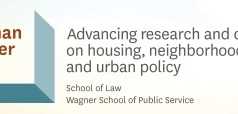Updated report shows mortgage industry has continued to spend generously on federal lobbying and campaign contributions as subprime meltdown deepens
Oct. 23, 2007 — As pressure mounts for Congress and the Bush Administration to restrict mortgage lending abuses that have saddled economically vulnerable families with mortgages they can not afford, the mortgage lending industry continues to funnel millions of dollars in lobbying and campaign donations to Congress, even as some of those mortgage institutions are struggling to stay afloat, a new Common Cause report shows.
The third in a series of “Ask Yourself Why” reports focusing on how average Americans are affected by special interest spending in Washington, this is an update to a June report that looked at the mortgage lending industry’s record of generous spending in Washington DC on lobbying and campaign contributions, and its success in blocking legislation to protect consumers from subprime mortgage loans they can not afford.
Since then, as thousands more Americans have lost their homes to subprime mortgage foreclosure, the largest mortgage lending companies and their trade associations have spent an additional nearly $32 million lobbying the federal government and donating to Members of Congress and the national political parties.
The industry’s continued generosity comes as pressure mounts on Congress and the Bush Administration to pass laws to protect homeowners and prevent future mortgage meltdowns.
“Even as evidence grew that new regulations were needed to protect consumers, mortgage lenders and brokers spent millions on campaign contributions and lobbying in order to protect record profits,” said Bob Edgar, president of Common Cause. “Though the scope of the subprime mortgage crisis has become evident, the industry is still spending millions to minimize oversight.”
In 2006 alone, foreclosure filings across the country were up 42 percent compared to 2005 – a total of 1.2 million homes in jeopardy, or one in every 92 homes. And foreclosures continue to mount in 2007. The foreclosure crisis is having a global ripple effect, as foreclosed homes increase the supply of available housing, further depressing home prices, with fears that a declining housing market may harm the larger economy.
The report found:
• Since the 110th Congress opened for business in January 2007, the largest subprime lenders and their trade associations have spent nearly $29.4 million lobbying the federal government. In addition, they have donated $2.4 million in political action committee (PAC) contributions to Members of Congress and the national political parties.
• Mortgage industry donations have moved toward the Democrats since they took control of Congress. From January to June of this year, the industry gave $1.23 million to Democrats and $1.21 million to Republicans.
• New congressional leadership and members of the House Financial Services Committee are a special focus of the industry. The former chairman of that committee and current ranking member, Rep. Spencer Bachus (R-AL), is the largest recipient of donations from that industry, taking in more than $250,000 since 1999.
• One common sense protection here would be the enactment of a system of public funding for congressional campaigns,” Edgar said. “That would help disarm special interest politics in Washington and ensure that public policy decisions benefit all Americans, not just those with deep pockets.”















